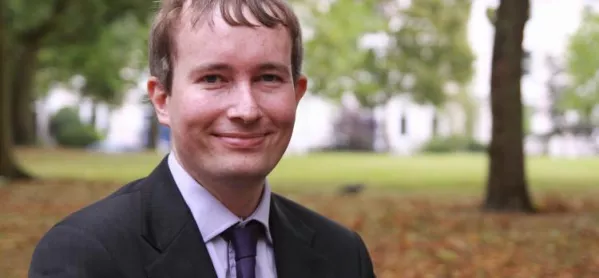Like every England football fan, for me, any glimmers of hope are usually tempered by the experience of what’s come before. So the inevitable consequence of conceding a last-minute equaliser to Colombia was surely to be yet another addition to the list of penalty defeats. And yet history didn’t repeat itself this time - strange as it is to write, England won a penalty shootout.
As with football, so with further education? We’ve had plenty of attempts at reforming apprenticeships and technical education - a once-in-a-generation chance every five years or so. Each government has started with the best of intentions and talked about putting employers in the driving seat. Won’t it be, as baseball coach Yogi Berra reportedly put it, like “déjà vu all over again”? Tenuous sporting links aside, why should it be any different this time?
My answer is: because it needs to be. The current system is clearly not perfect. At Learning and Work Institute we think the introduction of the levy, the switch to standards and the principles of T levels are right. But we’re concerned there are insufficient safeguards on apprenticeship quality, a lack of action to widen access and a missing picture of how the system as a whole stacks up.
Instead, it sometimes looks like a set of individual reforms, rather than a focus on how reforms help individuals.
Further education ‘puts a foot on the ladder’
So we’ll continue to argue for further changes. For example, we think the Institute for Apprenticeships should benchmark standards against the best in the world. We also think there should be an Apprentice Premium that helps to widen access - too many groups face stark participation penalties.
But what I also see is the work going on among colleges, providers and employers to give someone an opportunity they didn’t have before, that foot on the ladder. That’s why I’m optimistic about the future and I think there’s two areas to focus on.
The first is policy. The principles of T levels, the apprenticeship levy and standards are unlikely to go away (and nor do I think they should). But we have a golden opportunity over the next six months to influence the spring 2019 spending review. That will set investment levels and the policy framework for years ahead (unexpected general elections nothwithstanding...).
How do we make the case?
Lots of politicians argue that, with Brexit and some of the underlying reasons for the Brexit vote, we need to do more to meet our skills needs and widen opportunity. The question is “how?”. We need to win the argument over investing more, but also shape how the system is refined. How can we band together to make the case? Hopefully, the government is in the market for ideas - our recent essay collection, bringing together 10 leading thinkers to give their views on where next for apprenticeship reforms, aims to contribute to that debate.
The second area is delivery. Whatever the policy, it is delivery on the ground that can make the difference (sometimes despite policy). That relies on the excellent work of staff in colleges and providers. But I think devolution represents a new opportunity, too. The devolution debate often descends into who controls the budget. That matters. But metro mayors have a chance not just to shape skills supply, but to raise demand for learning.
It is unlikely, for example, that apprenticeship funding will be devolved (not least as the government argues it’s truly devolved to employers). But metro mayors and others can help to raise demand for apprenticeships among employers, and see more money flow into their areas as a result. They can also play a role in coordinating the system and the various “asks” of employers - we’re working with local enterprise partnerships to help do this.
But local areas will need support in deciding their priorities and spreading best practice. Central government has an enabling role here, and those delivering provision on the ground need to be listened to as well. We’re developing a new “what works” approach to try to help.
At our Festival of Learning reception last month, Anne Milton, the apprenticeship and skills minister, said it was the squeaky wheel that got the oil. We need to work together to be the squeakiest wheel possible. It needn’t be déjà vu all over again.
Stephen Evans is chief executive of the Learning and Work Institute





